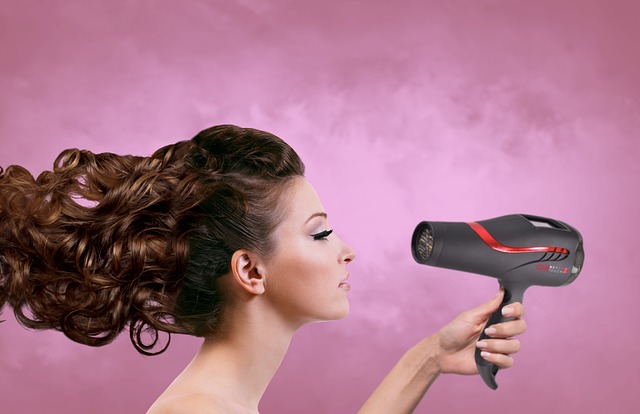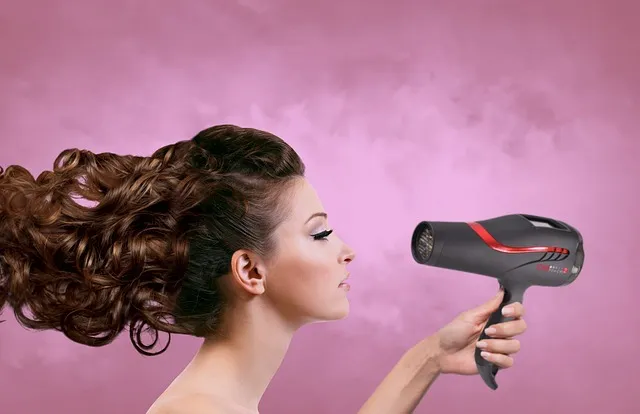What’s the Relationship Between Water Efficiency and Dryer Energy Use?
When you think of water efficiency, you’re likely imagining a washing machine using less water. That’s true! But here’s the twist – the less water your washing machine uses, the less work your dryer has to do. How? Well, it all comes down to moisture. If your washer is water-efficient, it spins clothes at higher speeds, removing more water before they even reach the dryer. With less moisture in the clothes, your dryer doesn’t need to work as hard or as long to dry them. Pretty neat, right?
This not only cuts down on energy use but also saves you time. Less drying time means lower energy bills and a smaller carbon footprint. Plus, who wouldn’t love to finish laundry faster? It’s like hitting two birds with one stone – you save on water and energy simultaneously.
But there’s more to it. High-efficiency washers not only conserve water but also contribute to the longevity of your dryer. Overworking your dryer can wear it out faster, leading to costly repairs or replacements. By investing in a water-efficient washer, you’re indirectly protecting your dryer and extending its lifespan.
So, next time you’re shopping for appliances, keep in mind that water efficiency isn’t just about saving water – it’s about enhancing your entire laundry process. Think of it as a domino effect, where one small change in water usage can lead to significant savings in energy, time, and even money.
How Water Efficiency Boosts Dryer Performance: A Deep Dive into Energy Savings
So, how does water efficiency boost dryer performance? Let’s break it down. Many modern dryers use moisture sensors that detect when your clothes are dry and adjust the drying time accordingly. This means less energy wasted on over-drying and a reduction in your energy bill. But there’s more to it. By using water-efficient washing machines, you’re not just saving water but also enhancing your dryer’s efficiency.
Here’s why: when washing machines use less water, they also spin clothes faster to remove more moisture before they even hit the dryer. This reduced moisture load means your dryer doesn’t have to work as hard to get your clothes dry. Think of it like this: if you start with less water, your dryer has a much easier job, similar to how a baker benefits from starting with dry ingredients.
In addition, many water-efficient washers are designed to optimize water usage in a way that’s compatible with modern dryers. This synergy can lead to quicker drying times and lower energy consumption. Essentially, you’re setting up a winning team—less water in the washer equals less moisture for the dryer to handle.
Incorporating water efficiency into your laundry routine isn’t just about conserving water; it’s a smart move for your wallet and the environment. By reducing the amount of moisture your dryer needs to deal with, you’re enhancing its performance and cutting down on energy use. It’s a win-win!
Less Water, More Savings: Uncovering the Link Between Water Efficiency and Dryer Energy Use
Here’s the scoop: when you optimize your water usage, you might be cutting costs on more than just your water bill. Think about it. When you wash clothes in a water-efficient machine, you’re using less water, which means your clothes come out less soggy. This reduction in moisture means your dryer doesn’t have to work as hard to remove excess water. Less water equals quicker drying times and, naturally, lower energy consumption.
Now, you might be wondering, “How does this all add up?” Imagine your dryer as a hungry beast, gobbling up electricity to dry your clothes. If your clothes are drenched, the beast needs more fuel to get the job done. But if your clothes are just lightly damp, the beast’s appetite shrinks. So, by starting with less water, you’re essentially feeding the beast less, saving energy, and cutting down on those pesky utility bills.
But that’s not all. Efficient water usage can also extend the life of your dryer. When it’s not overworked, it’s like giving your dryer a break and allowing it to perform better over time. Think of it as a spa day for your appliance!
So, next time you’re contemplating whether to invest in a water-efficient washer, remember this: less water isn’t just about saving on your water bill. It’s also a smart move for your dryer’s energy use and longevity. Who knew that a simple change could have such a big impact?
The Surprising Connection Between Efficient Water Use and Reduced Dryer Costs
Think about it: every time you run your washing machine, you’re not just using water—you’re also using energy. A washing machine’s job isn’t done until your clothes are spun out and ready for the dryer, and that spin cycle uses a lot of water. The more efficiently your washer removes water, the less work your dryer has to do. It’s like the difference between a half-filled bathtub and a well-drained shower. The dryer, in this case, is the metaphorical showerhead, and a well-drained tub means less drying time.
Now, imagine if your washing machine wrung out clothes like it was squeezing every last drop of juice from an orange. The less water left in your clothes, the faster they dry. This efficiency doesn’t just cut down on your drying time; it also reduces the amount of energy your dryer needs to get the job done. Less energy used equals lower utility bills. It’s a win-win situation!
Moreover, newer washing machines are designed to be more water-efficient, often using less water per load while still delivering a thorough clean. Pairing this with a modern dryer, you’re optimizing both ends of the laundry process. This clever combination not only saves on drying time but also reduces wear and tear on your dryer, extending its lifespan.

So next time you’re thinking about ways to cut costs, remember: being mindful of how you use water could be your ticket to slashing those dryer bills. It’s a small change with a surprisingly big impact!
From Faucet to Dryer: How Water Conservation Impacts Your Energy Bills
Think of your water system as a giant machine working behind the scenes. When you use more water, your water heater has to work overtime to keep that water at the right temperature. The more water you use, the more energy your heater needs to pump it up to the right warmth. It’s a bit like driving a car with a constantly running engine—fuel costs pile up fast!
Now, consider the dryer. When you put in a load of clothes, the dryer needs a constant supply of water vapor to operate efficiently. Using more water means the dryer will have to work harder to get rid of that extra moisture, leading to higher energy consumption. It’s as if your dryer is constantly racing to catch up, burning through energy just to keep up with the extra load.

By conserving water—whether it’s fixing leaks, using efficient fixtures, or just being mindful of how much you use—you’re actually making life easier for your water heater and dryer. Less water means less energy is needed to heat or dry it. It’s a win-win situation: you save water, and your energy bills drop, too.
So, next time you’re about to let the faucet run or overload your dryer, remember that small changes can lead to significant savings. Every drop saved is a step towards lighter energy bills and a greener planet!

